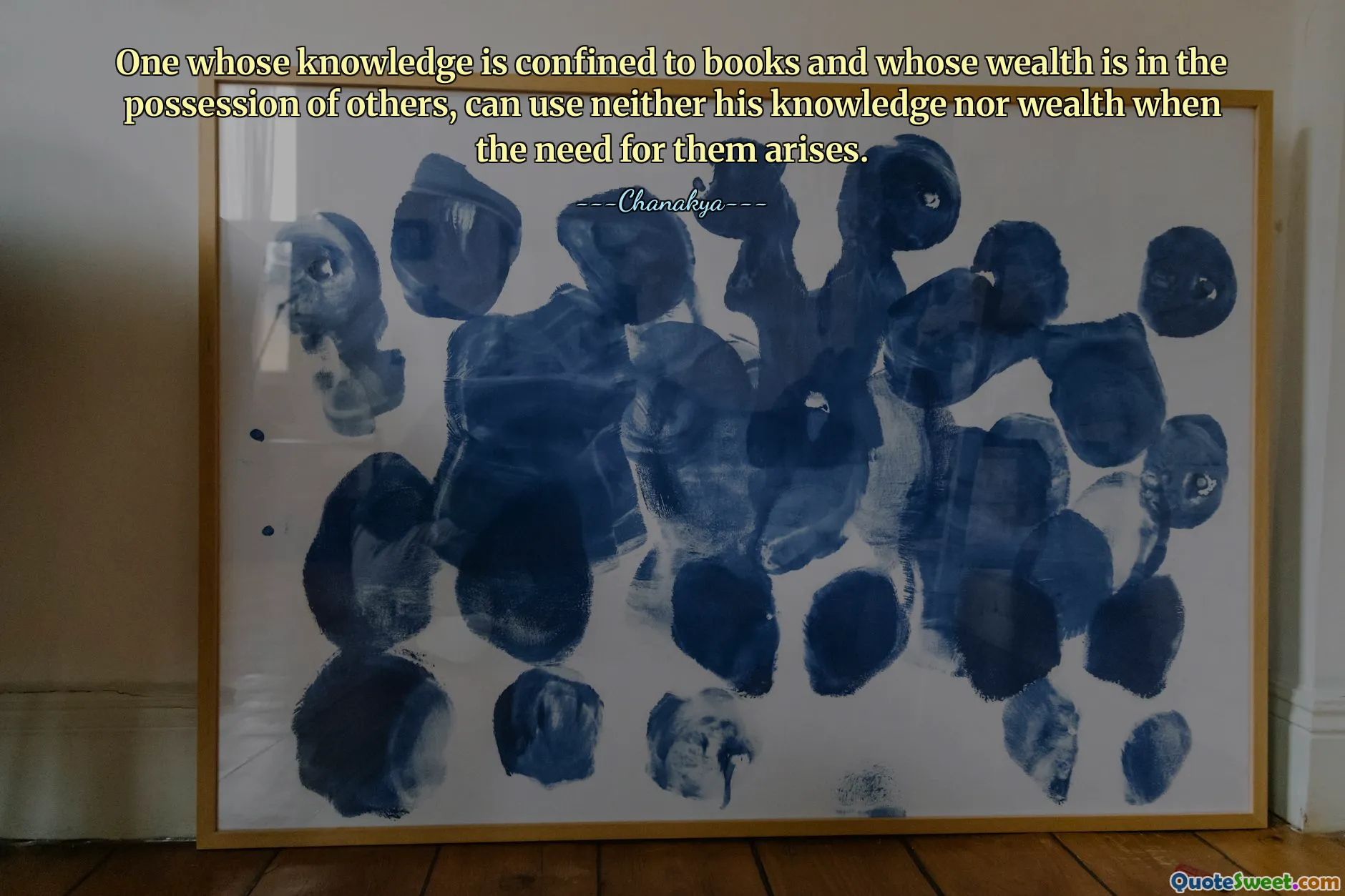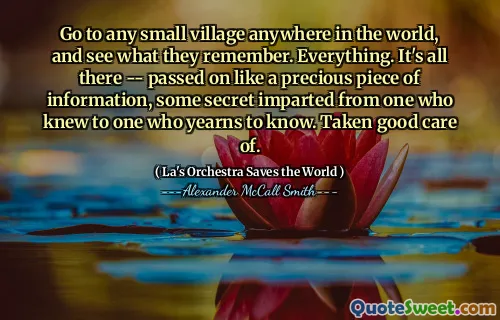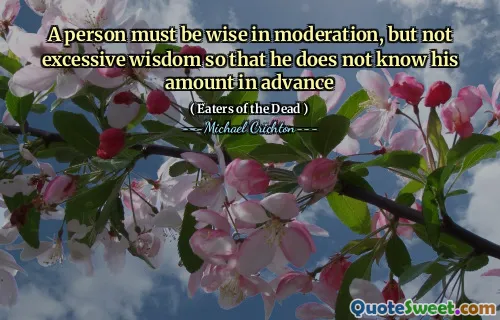
One whose knowledge is confined to books and whose wealth is in the possession of others, can use neither his knowledge nor wealth when the need for them arises.
📖 Chanakya
This quote underscores the fundamental difference between theoretical knowledge and practical wisdom, as well as tangible wealth and the ability to utilize it effectively. Merely possessing knowledge stored within books can be limited if one lacks the experience or the opportunity to apply that knowledge in real-world situations. Knowledge, in isolation, is like a well of potential that remains untapped unless it's actively employed. Similarly, wealth that is not under one's control or that cannot be accessed when needed fails to serve its purpose. This emphasizes the importance of self-sufficiency, the ability to take action, and the necessity of integrating knowledge with skill and resource control. It echoes the age-old lesson that information and possessions, while valuable, must be complemented by capability and readiness to leverage them when it matters most. In modern contexts, this could reflect the importance of hands-on experience, technical skills, or simply having the sovereignty over your resources—be it financial, intellectual, or material—to respond effectively in times of crisis or opportunity. True preparedness relies on the combination of learned knowledge, practical skills, and ownership or control over one’s assets. Without these, both knowledge and wealth risk being static and ineffective, unable to fulfill their potential to bring about change, support, or progress when needed. Ultimately, this quote challenges us to transform passive accumulation into active application, cultivating not just knowledge or wealth, but the capacity to use them meaningfully.











